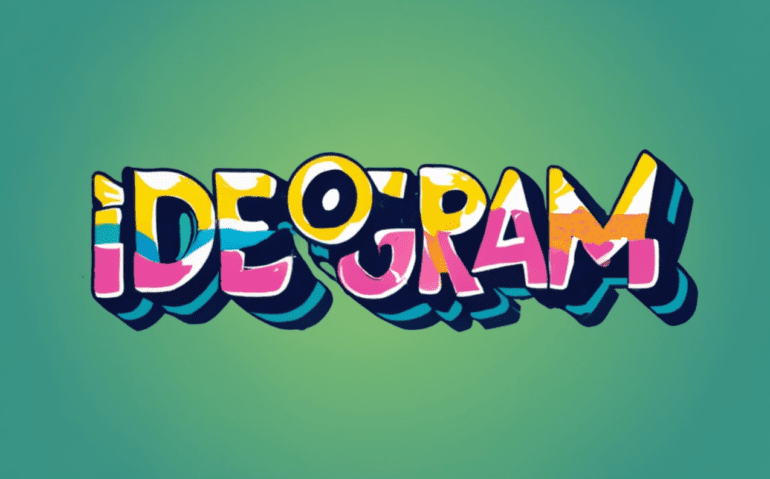TL;DR:
- Toronto-based AI startup Ideogram unveils an innovative text-to-image platform.
- Secures $22.3 million CAD ($16.5 million USD) in seed funding led by a16z and Index Ventures.
- Backed by tech luminaries, including Raquel Urtasun, Sarah Guo, and Tom Preston-Werner.
- Founding team comprises AI veterans from Google Brain, UC Berkeley, and University of Toronto.
- Ideogram aims to democratize creativity through generative AI tools, similar to OpenAI’s DALL-E.
- Platform invites users to input prompts and select rendering styles to generate images.
- Raises questions about intellectual property rights in AI-generated art.
- Ideogram emphasizes trust, safety, and ethical standards on its platform.
- Company is actively hiring for various roles in Toronto.
Main AI News:
In a resounding testament to the burgeoning potential of artificial intelligence (AI) in reshaping creative landscapes, Ideogram, a Toronto-based AI startup, has launched a groundbreaking platform fueled by $22.3 million CAD ($16.5 million USD) in seed funding. Spearheading this landmark endeavor are prominent venture capital firms Andreessen Horowitz (a16z) and Index Ventures, who took the helm of the funding round. Additional backing flowed in from AIX Ventures, Golden Ventures, and Two Small Fish Ventures, collectively underscoring the investment community’s fervor for Ideogram’s vision.
The brainchild of luminaries such as Canadian computer science luminary Raquel Urtasun, the visionary behind Waabi, as well as tech stalwarts like Sarah Guo of Conviction and Tom Preston-Werner, co-founder of GitHub, Ideogram’s inception has been propelled by an assembly of luminaries. Notably, the Ideogram team boasts experts who have steered AI initiatives at esteemed institutions like Google Brain, UC Berkeley, and the University of Toronto. Mohammad Norouzi, the CEO of Ideogram and formerly a senior staff research scientist at Google, is a prime exemplar of this esteemed talent pool.
A standout contributor to the AI domain, Norouzi played a pivotal role in shaping Google’s revolutionary text-to-image system, Imagen, among a slew of other AI breakthroughs. At Ideogram, he’s joined by co-founders Chitwan Saharia, William Chan, and Jonathan Ho, all of whom share a formidable history of AI leadership. Their collective mission under the Ideogram banner is to democratize creativity through the power of generative AI. The firm’s pioneering text-to-image platform, unveiled today, mirrors the ingenious capabilities of OpenAI’s DALL-E image-generation platform.
Registration on Ideogram’s platform beckons users to embark on a creative journey. After a seamless sign-up process, users are immersed in a world of possibilities. Armed with the capacity to input prompts and select from an array of rendering styles, including anime, dark fantasy, and graffiti, the platform takes the reins, conjuring captivating visuals. It’s worth noting that, akin to other AI-powered art generators, Ideogram’s creations exude allure while embracing a hint of imperfection.
The striking image accompanying this narrative serves as a vivid illustration. Initiated by the prompt “Racoon wearing a Toronto Raptors jersey in Toronto” and adopting cinematic 3D rendering, Ideogram’s AI instead weaves a narrative that features a raccoon donning an “IAPTOD” jersey, evoking the essence of the Raptors’ iconic branding. In an intriguing twist, the image subtly incorporates the distinctive CN towers into its backdrop, a detail not lost on astute observers.
Despite the undeniable strides that generative AI platforms have made in amplifying the creative process, it is imperative to acknowledge the concerns that have arisen alongside their ascendancy. Recent episodes have underscored these apprehensions, with AI art generators Stable Diffusion and Midjourney facing legal ramifications for allegedly infringing upon artists’ intellectual property rights through unauthorized training on a vast repository of web-sourced images.
Amidst this dynamic landscape, Ideogram stands apart by fostering a creative ethos intertwined with a resolute commitment to trust and safety. A manifesto on its website accentuates this principle, reflecting the company’s unwavering dedication to cultivating a space where innovation thrives within well-defined ethical boundaries.
As Ideogram galvanizes its revolutionary pursuits, the company’s expansion is palpable. Opportunities beckon for talented individuals to join the journey, as roles spanning engineering, research, design, and operations emerge in Toronto. This expansion embodies Ideogram’s resolute stance to not only shape the creative frontier but also nurture an ecosystem where talent flourishes.
Conclusion:
Ideogram’s successful launch and substantial seed funding highlight the escalating potential of AI-powered creative platforms. With backing from industry leaders and a team of AI experts, Ideogram’s approach to democratizing creativity has the potential to reshape the creative landscape while raising important discussions about ethics and intellectual property rights. The market can anticipate heightened interest in AI-generated art and the need for robust ethical frameworks.

